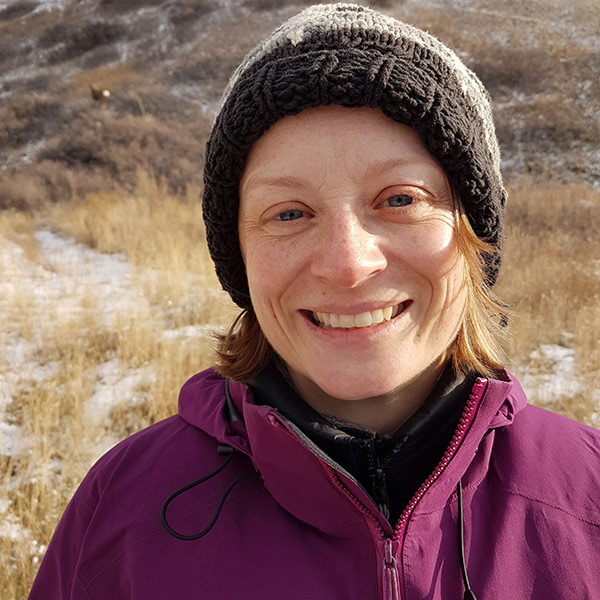Monika Gorzelak, research scientist, Agriculture and Agri-Food Canada


Monika Gorzelak is a soil microbial ecologist at Agriculture and Agri-Food Canada’s (AAFC) Lethbridge Research and Development Centre (RDC). Gorzelak completed her undergraduate studies at the University of Guelph in microbiology and her PhD in forestry at the University of British Columbia (UBC). She lives in Lethbridge with her husband and their two daughters, ages two and six.
Where did you work before the Lethbridge RDC?
Before I joined AAFC, I was doing my PhD in forestry at UBC, looking at trees talking to each other. My PhD supervisor, Suzanne Simard, is an inspiration. She recently published a book called “Finding the Mother Tree,” has a popular TED Talk and was recently named one of Time Magazine’s 100 most influential people in the world for 2024.
What got you interested in this area of work?
I’ve always liked the whole microbial world, even though it’s a small sliver of the ecology ecosystem. There are cases where plants help each other – where microbes leverage their relationships with other organisms for their own success and help crops and plants succeed. I’m quite interested in that kind of interspecies and ecological community-based interaction research, and I like to focus on less well understood and slightly understudied concepts in ecology.
Tell us a bit about what you are working on at Lethbridge RDC.
In the Understanding the interactions of N fertilizer technologies, fungicides, and the soil microbiome to optimize sustainable agriculture project funded partially by MCA, we are trying to understand what happens to the beneficial soil microbiome when enhanced efficiency fertilizers (EEFs) are used in cropping rotations.
We are doing that in three different ways. First, leveraging several years of small-plot-scale work by Brian Beres where they evaluated different EEFs in wheat. We sampled their plots and final year of research to compare soil microbiomes and get a grasp of the community composition and diversity of the bacteria and fungi in those soils.
Next, we are going to build on that information in the greenhouse. We are setting up our first greenhouse study to do a closer and more controlled experiment, looking at the impact of EEFs on the soil microbiome.
For the third part of this project, we are going to look at the impact of prior crop on spring wheat in the greenhouse. In summary, this project is looking at how to leverage beneficial soil microbes to help farmers be more productive; answering the question, “Can we do more with less inputs?”
What can you say about the value of farmers providing funding and support to your organization?
I couldn’t do this research without funding from farmers. I am fortunate to have a job that supports me to be able to ask what I think are important questions that are relevant to others. Getting this funding from farmers indicates that they are interested in the work that I am interested in, so it feels more meaningful.
How does that farmer funding and support directly benefit farmers?
The goal, of course, is to create more sustainable agriculture or to create information that farmers can use to make decisions, with the goal of having more sustainable systems at the end of the day.
How do you spend your time outside of work?
I’m a pretty sporty person and I like to be outside when I can. I also love cooking elaborate meals. My favourite thing to cook is always changing, usually whatever is seasonal.
What is the best part about your job?
I really like idea generation and designing experiments. Having an idea and looking at data to see if I’m wrong – because data usually doesn’t lie to you – or if the idea is supported. The whole process is very logical, but it’s also creative at the same time because you must come up with good questions and novel ways to answer those questions. It’s in the design and the uniqueness of experiments where I get excited.
I’ve also loved meeting farmers, especially the direct-to-consumer farmers. I get a lot of my produce locally because I know the folks I’ve worked with and who they are, and I can show up and get a rather large portion of my food locally. That feels awesome.
What are you excited about for the future of agriculture?
I think there are a lot of opportunities to create efficiencies that are going to benefit the environment and the farmer at the same time. Technology has really developed, as well as our understanding about the systems that are needed to help mitigate climate change, for example. There is a lot of opportunity for farmers to contribute, while continuing to produce and make money.
